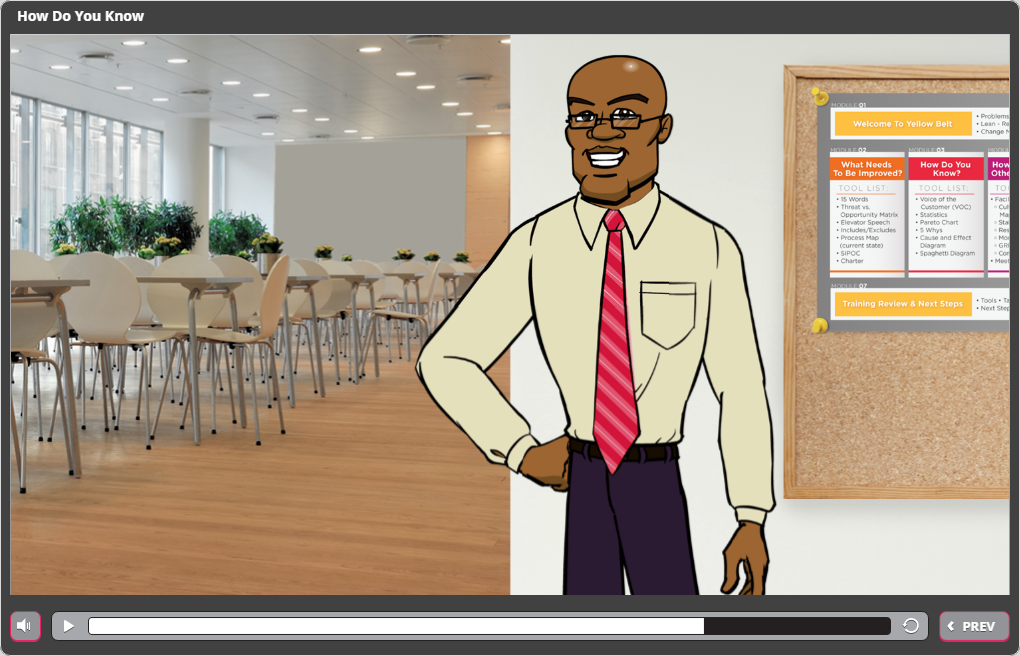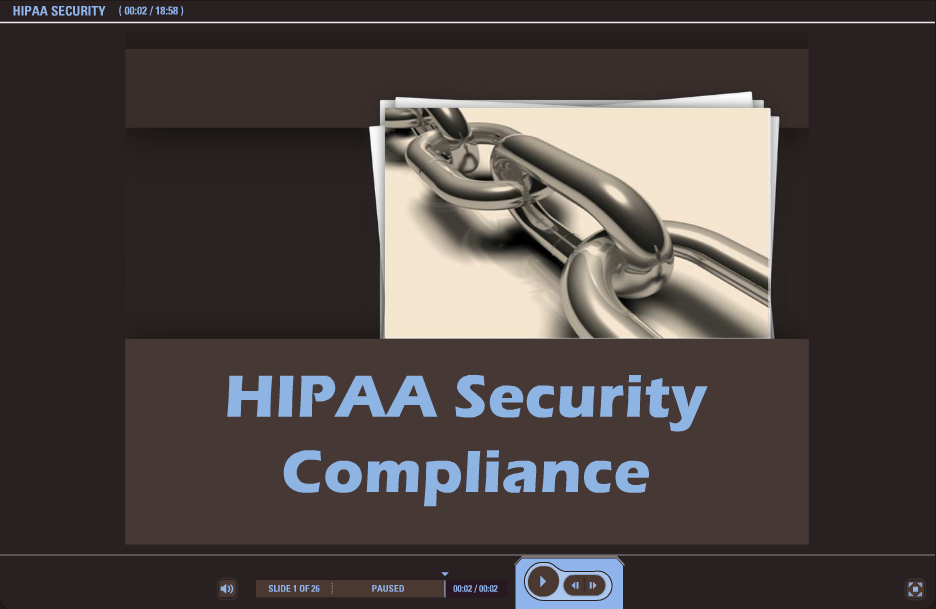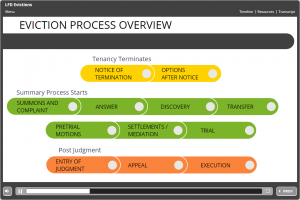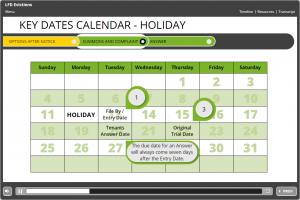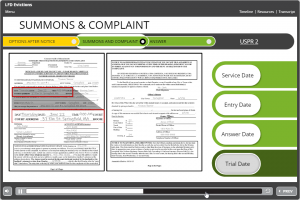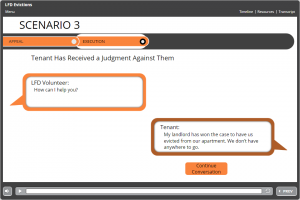MLRI: The Eviction Process
It was a joy to work with ThinkingKap. They responded promptly to our many inquiries and always treated us as a partner in developing our solutions. They were great listeners and spurred us to think critically about our goals for each part of the training, which guided us towards a better product. We also appreciated their patience and sense of humor throughout the process.
The training was superb. The best online legal training I've ever seen. Clear. Comprehensive. The pop quizzes were invaluable. Terrific piece of work!
Challenge
In Massachusetts, Lawyer for the Day programs consist of volunteer lawyers providing basic legal advice, in this case, housing law (evictions) to both landlords and tenants. Training was an ongoing need across the state for all existing LFD programs as new volunteers join the ranks of those in court providing help. In addition, a training solution was needed for newly emerging LFD programs. Because all current LFD training took place as face-to-face sessions, there was also a real need for an online curriculum to supplement existing LFD training and reach more people at the same time.
Solution
Our approach was to create a baseline course on the eviction process to serve as a precursor to the live sessions. To make sure even new volunteers were properly oriented to the eviction process, we featured an interactive timeline as the central reference. This provided context around the sequence and timing of all the steps. We used additional supports, like interactive calendars and guided tours of required forms. We also gave learners an “over-the-shoulder” view of sample dialogs between experienced volunteers and people seeking assistance. Afterwards, learners were asked questions about why certain tactics were employed by the volunteers, to help solidify their ability to apply the law to real situations.
Impact
Since all LFD training had previously been conducted via the face-to-face sessions, they needed to contain all of the ground-up material. Because of this, the sessions ended up with a very tactical focus. For this reason, the in-person training became more targeted once participants were given a primer on key terms, procedures, and the overall process prior to the training. This freed up time for the in-person training to focus on strategic issues, making the entire experience much more effective. The online format also provides exposure to new audiences. The plan is to offer the course to law school programs who are training law students to go to housing court, and for new legal services housing attorneys.


